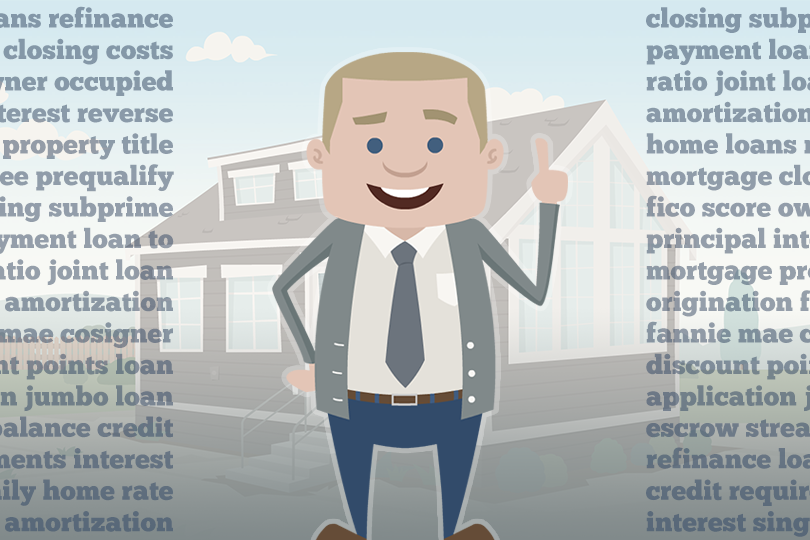Your Questions Answered About FHA Loans and Student Debt
February 13, 2025
Q: How does student loan debt affect my mortgage chances?
A: Student loan debt affects your ability to qualify for an FHA mortgage, primarily because of how it changes your debt-to-income ratio (DTI). Lenders calculate your DTI by dividing your total monthly debt payments (including student loans, credit cards, car loans, and the potential mortgage) by your gross monthly income.
A high DTI, often above 43% for most mortgages, can hinder your ability to secure a loan or lead to less favorable terms. Essentially, the more your income goes toward debt repayment, the less likely lenders approve a new loan.
Q: What is the debt-to-income ratio (DTI), and why is it important?
A: The debt-to-income ratio (DTI) is a metric lenders use to measure your creditworthiness. It indicates how much of your monthly income is already committed to debt payments. Lenders prefer lower DTIs because there is more disposable income and less chance you may default on a loan. Student loan payments directly increase your DTI, making it a critical factor in mortgage approvals.
Q: How do lenders view borrowers with substantial student loan debt?
A: Even if your DTI is technically within acceptable limits, a large student loan burden can still raise concerns for lenders. They may view borrowers with significant student debt as higher risk, even if they're currently managing their payments. This is because of the amount of income already allocated to debt repayment leaves less buffer for unexpected expenses or financial hardships.
Q: Can I still get a mortgage if I have a lot of student loan debt?
A: Yes, homeownership is possible even with student loans. While it can be more challenging, especially with substantial debt, it’s not insurmountable. Strategies like improving your credit score, lowering other debts, saving for a larger down payment, and exploring specific loan programs can improve your chances.
Q: Are there specific types of mortgages that are more accessible with student loan debt?
A: FHA loans, insured by the Federal Housing Administration, are often a good option for borrowers with student loan debt. FHA loans generally have more lenient credit score and DTI requirements than conventional loans, making them more accessible to those carrying student debt.
Q: How are student loan payments factored into FHA loan calculations?
A: FHA guidelines require lenders to use the monthly payment amount reported on your credit report or loan documentation, even if your loans are in forbearance.
This means that even if you're not actively making payments right now, the anticipated future payment will be included in your DTI calculation for the FHA loan.
Q: What steps can I take to improve my chances of getting an FHA loan with student debt?
A: Several steps can improve your chances:
- Calculate your DTI: Understand your current DTI, including your student loan payments, and estimate potential mortgage payments to see where you stand.
- Explore Income-Driven Repayment (IDR) plans: IDR plans can lower your monthly student loan payments, thus reducing your DTI. However, lenders will likely use the projected payment under the IDR plan, not your current payment.
- Improve your credit score: A good credit score is crucial for any mortgage. Check your credit report and address any errors.
- Save for a down payment: A larger down payment reduces the loan amount and improves your DTI.
- Reduce other debts: Paying down credit card balances or other loans can lower your overall DTI.
- Shop around for lenders: Different lenders may have varying DTI requirements for FHA loans.
- Communicate with your lender: Transparency about your student loan situation is key.
- Consider a co-borrower: A strong financial profile can strengthen your application.
- Seek financial counseling: A financial counselor can provide personalized guidance.
- Be patient and persistent: The home-buying process takes time and effort.

FHA Loan Articles
August 23, 2023Mortgage APR (Annual Percentage Rate) and a loan's interest rate are two different things, although they are closely related. Understanding the difference is an important part of a borrower's analysis of the true cost of their mortgage.
August 19, 2023FHA refinance loans allow homeowners with existing FHA loans to refinance their mortgages. These loans are designed to help borrowers take advantage of lower interest rates, reduce their monthly mortgage payments, or access equity in their homes for various purposes.
August 14, 2023FHA loans typically require a minimum down payment of 3.5% of the purchase price of the home with the right credit score. This means that if you're buying a house for $240,000, you would need to make a down payment of at least $8,400.
August 10, 2023FHA loans have specific rules and requirements for borrowers who have filed for bankruptcy. The guidelines can change over time, so it's essential to consult with a qualified lender or FHA-approved counselor for the most up-to-date information.
August 3, 2023FHA loans are primarily designed to help individuals and families purchase homes for use as their primary residences. Rules for these loans generally discourage their use for investment properties or rentals. However, there are exceptions that come with strict rules.







